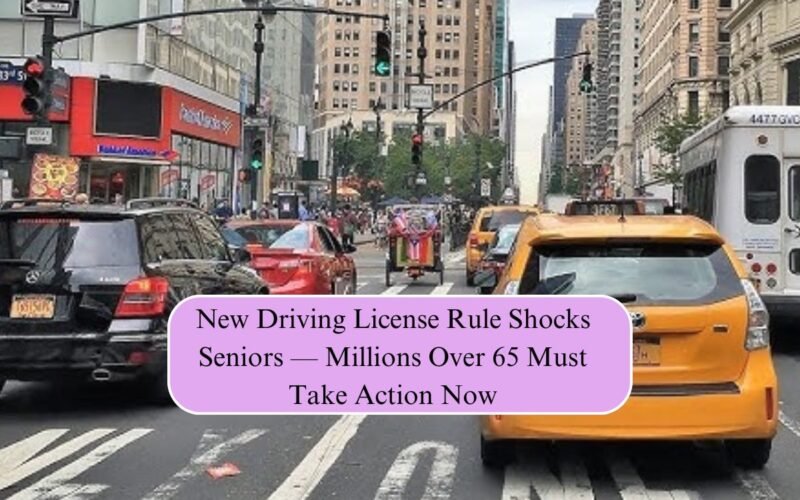A major change in driving license regulations is sending shockwaves through senior communities across the United States. The new rule, affecting millions of Americans aged 65 and older, introduces stricter renewal requirements, vision checks, and in some states, mandatory driving tests. Officials say the new measures aim to improve road safety and ensure that aging drivers continue to meet the physical and cognitive standards necessary for safe driving.
What’s Changing for Seniors’ Driving Licenses
Under the new policy, many states have shortened the renewal period for drivers aged 65 and above. Instead of renewing licenses every eight or ten years, older drivers may now need to renew every two to four years, depending on their state. Additionally, several DMVs are requiring in-person renewals, even for those who previously renewed online or by mail. The move is designed to allow staff to conduct vision tests, review medical conditions, and, in some cases, evaluate driving ability.
States Implementing the New Rules
While this is a nationwide trend, some states are leading the way with immediate implementation. California, Florida, Texas, and New York have already introduced enhanced testing protocols for drivers over 70. Other states, including Illinois, Pennsylvania, and Arizona, are reviewing similar proposals. These changes are part of a larger effort to update traffic safety standards amid an aging population that is staying on the road longer than ever before.
Why These Rules Are Being Enforced
According to transportation safety officials, the new rules are not meant to punish senior drivers but to prioritize safety for everyone on the road. Statistics show that reaction time, vision, and cognitive awareness can decline with age, which may affect driving performance. The new guidelines encourage seniors to undergo more frequent assessments and, if necessary, receive support such as restricted licenses or driving refresher courses.
What Seniors Need to Do Now
Seniors aged 65 and above should review their state’s DMV website or visit a local office to check if they are affected by the new changes. If your license renewal is coming up within the next 12 months, it’s crucial to prepare the required documents early. Bring updated medical forms, glasses or contact prescriptions, and proof of residence. Those who fail to meet the new requirements may face delays in license renewal or temporary suspensions until they complete the necessary tests.
How This Impacts Daily Life
For many seniors, driving represents independence, freedom, and connection to community activities. Losing or delaying a license can significantly impact daily routines such as doctor visits, grocery shopping, and social events. Therefore, experts recommend that families stay informed and help older relatives prepare for the new driving evaluations in advance. Some local DMVs are even offering free pre-test checkups to help seniors feel confident behind the wheel.
FAQs
1. Who is affected by the new driving license rule?
The rule applies to drivers aged 65 and older across several U.S. states. The specific requirements may vary depending on where you live.
2. Do all seniors have to take a driving test now?
Not all states require a driving test, but many mandate vision screenings and in-person renewals for older drivers. Some states may also require a road test if health or vision issues are identified.
3. Can seniors renew their license online?
In most cases, no. Many states are now requiring in-person renewals for seniors to verify medical and vision fitness.
4. How often do seniors need to renew their licenses under the new rule?
Most states have reduced the renewal period to every two to four years for drivers over 65, depending on local laws.
5. What happens if a senior fails the vision or driving test?
Drivers who fail may receive a restricted license (e.g., daytime-only driving) or be asked to retake the test after addressing any medical or vision concerns.

